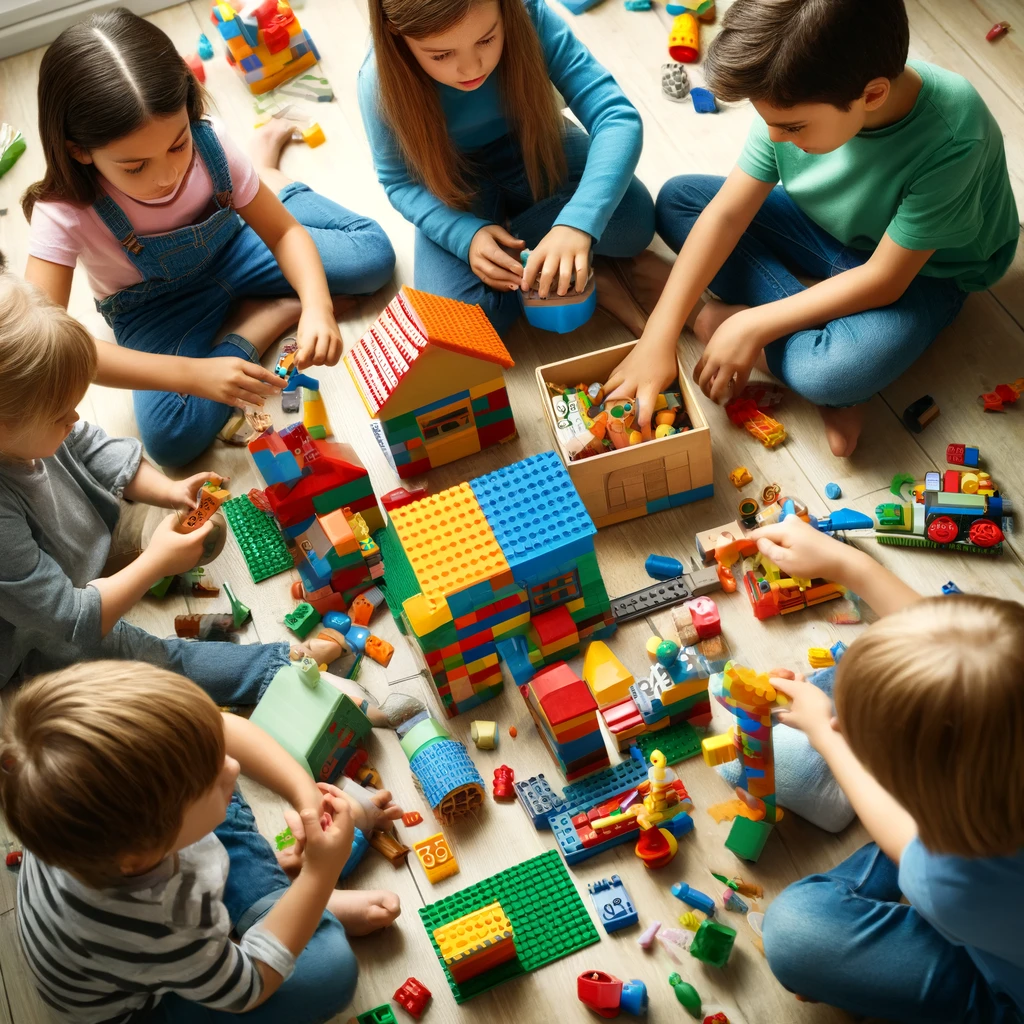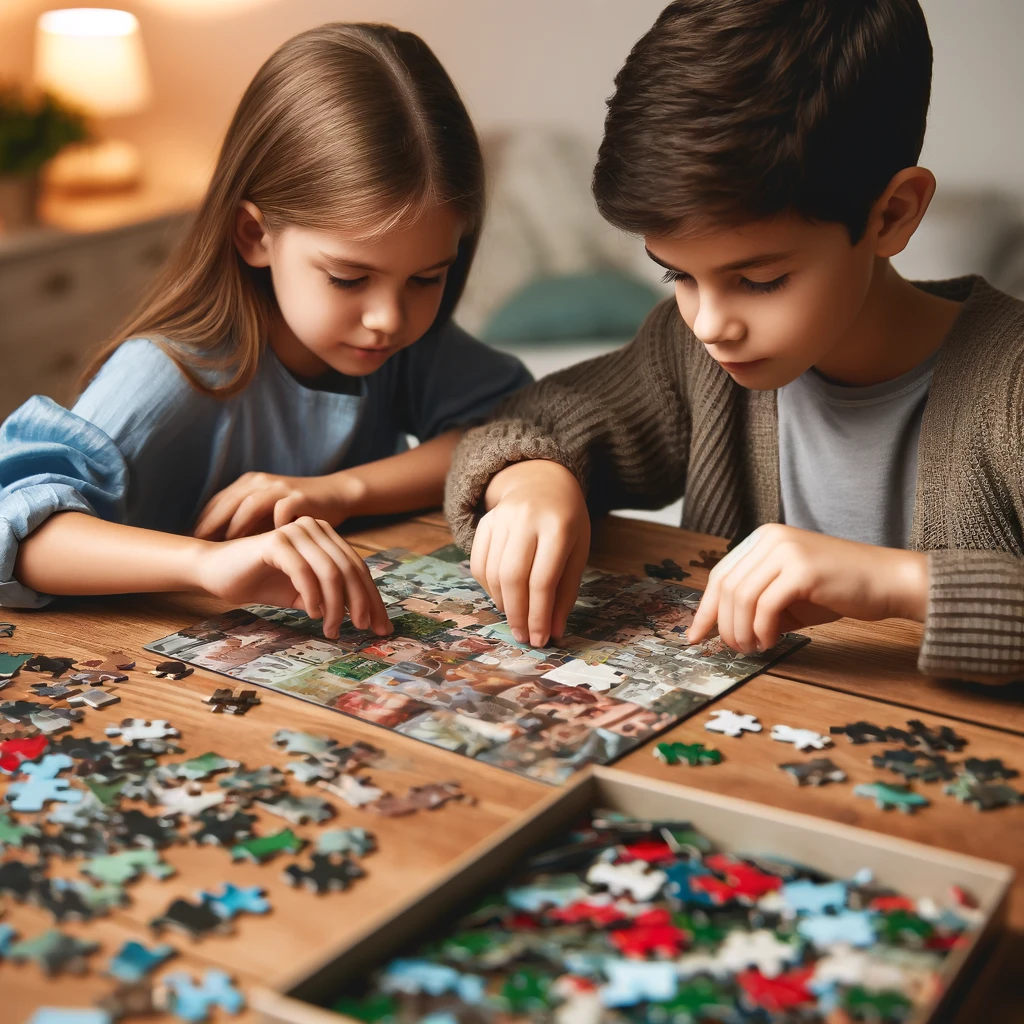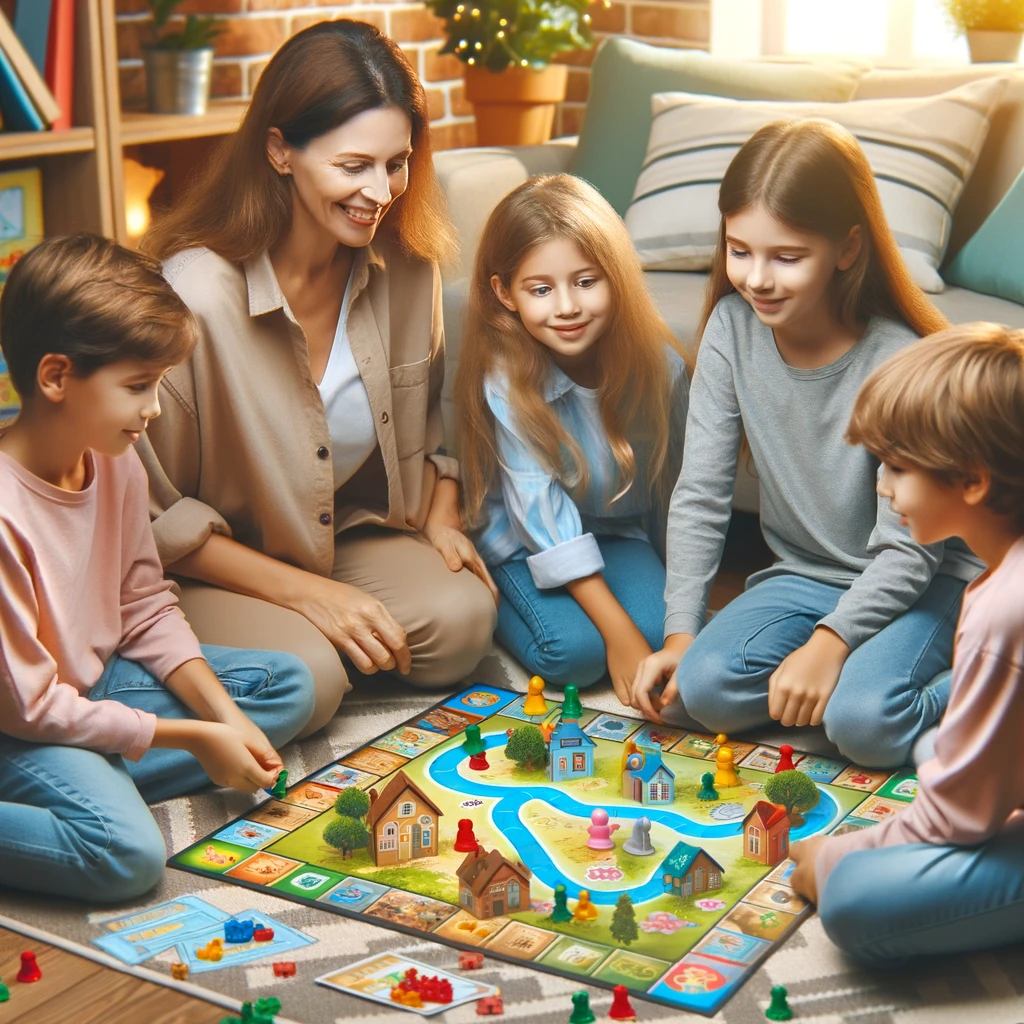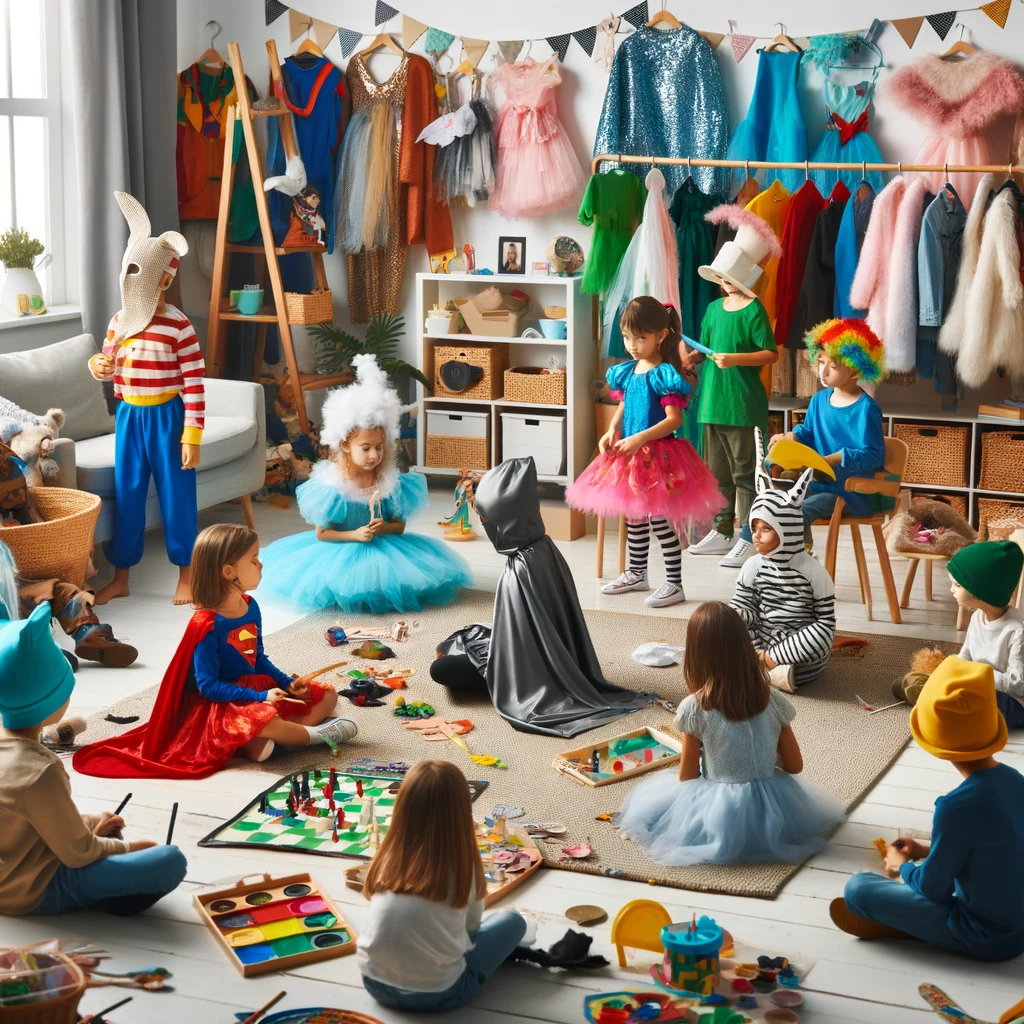Educational Playtime Ideas: Games that Promote Learning and Development
Educational playtime is a vital aspect of childhood development, offering numerous benefits that extend beyond mere entertainment. Through engaging in games and imaginative play, children can enhance their cognitive, social, emotional, and physical skills. This blog post explores various educational playtime ideas, the benefits of these activities, and how they can be seamlessly integrated into daily routines to foster a well-rounded development in children.
Games that Promote Learning and Development
1. Building Blocks and Construction Toys
Building blocks and construction toys are classic educational tools that promote a range of developmental skills. They help children improve their fine motor skills, hand-eye coordination, and spatial awareness. Additionally, these toys encourage problem-solving, creativity, and perseverance.

Benefits:
- Enhances spatial reasoning and understanding of geometry.
- Develops fine motor skills and hand-eye coordination.
- Encourages problem-solving and creative thinking.
Play Ideas:
- Challenge your child to build specific structures, like a house or a bridge.
- Incorporate storytelling by creating a narrative around their constructions.
- Introduce basic math concepts by counting blocks and discussing shapes and sizes.
2. Puzzle Games
Puzzles are excellent for cognitive development, enhancing memory, concentration, and problem-solving skills. They come in various forms, including jigsaw puzzles, logic puzzles, and 3D puzzles, catering to different age groups and difficulty levels.

Benefits:
- Improves memory and cognitive skills.
- Enhances problem-solving abilities and logical thinking.
- Promotes patience and perseverance.
Play Ideas:
- Start with simple puzzles and gradually increase the difficulty as your child’s skills improve.
- Work on puzzles together to encourage teamwork and communication.
- Use puzzles as a learning tool by selecting themes that interest your child, such as animals, space, or geography.
3. Educational Board Games
Board games can be both fun and educational, offering opportunities to develop various skills, including math, language, strategy, and social skills. Games like “Scrabble,” “Monopoly,” and “Chess” are excellent examples of how learning and play can go hand-in-hand.

Benefits:
- Enhances math and language skills.
- Develops strategic thinking and planning abilities.
- Promotes social interaction and teamwork.
Play Ideas:
- Choose board games that align with your child’s interests and educational needs.
- Encourage family game nights to foster bonding and communication.
- Discuss the strategies and decisions made during the game to enhance critical thinking.
4. Science Kits and Experiments
Science kits and experiments provide hands-on learning experiences that stimulate curiosity and a love for discovery. These activities can introduce children to basic scientific concepts and encourage them to explore the world around them.

Benefits:
- Develops critical thinking and problem-solving skills.
- Enhances understanding of scientific concepts and the scientific method.
- Encourages curiosity and a love for learning.
Play Ideas:
- Choose age-appropriate science kits that cover topics like chemistry, physics, or biology.
- Conduct simple experiments at home, such as creating a volcano with baking soda and vinegar.
- Visit science museums or participate in science fairs to further ignite their interest.
5. Educational Apps and Digital Games
In the digital age, educational apps and games offer a modern approach to learning. These tools can cover a wide range of subjects, including math, language arts, coding, and more. They are often interactive and designed to make learning fun and engaging.

Benefits:
- Enhances digital literacy and technical skills.
- Provides personalized learning experiences.
- Covers a wide range of educational topics in an interactive format.
Play Ideas:
- Research and select high-quality educational apps that are appropriate for your child’s age and learning needs.
- Set time limits to ensure balanced screen time and physical play.
- Discuss the content and skills learned through the apps to reinforce understanding.
The Benefits of Imaginative Play
Imaginative play, also known as pretend play or make-believe, is a crucial aspect of childhood development. It allows children to explore different roles, scenarios, and emotions in a safe and controlled environment. Here are some key benefits of imaginative play:

1. Cognitive Development
Imaginative play stimulates cognitive growth by encouraging children to think creatively and solve problems. It helps them develop language skills, memory, and the ability to plan and organize their thoughts.
Examples:
- Role-playing as doctors, teachers, or chefs to explore different professions.
- Creating and telling stories with toys and dolls to enhance narrative skills.
- Building imaginary worlds with props and costumes to develop spatial awareness.
2. Emotional Development
Through imaginative play, children can explore and express their emotions. It provides an outlet for them to process their experiences, understand different perspectives, and develop empathy.
Examples:
- Acting out scenarios involving different emotions, such as joy, sadness, or anger.
- Using puppets or stuffed animals to discuss feelings and resolve conflicts.
- Creating safe spaces for children to express themselves freely without judgment.
3. Social Skills
Imaginative play often involves collaboration and communication with others. It helps children learn to share, negotiate, and cooperate, fostering important social skills that are essential for building relationships.

Examples:
- Organizing playdates where children can engage in group pretend play.
- Setting up a play kitchen or store where children can take turns being the customer and the shopkeeper.
- Encouraging children to create and perform plays or skits together.
4. Physical Development
While imaginative play primarily focuses on cognitive and social skills, it can also support physical development. Activities like dress-up, building forts, and playing with props require coordination, balance, and fine motor skills.

Examples:
- Building obstacle courses or treasure hunts that combine physical activity with imaginative scenarios.
- Creating art and craft projects related to their pretend play themes.
- Engaging in outdoor pretend play activities, like pirate adventures or jungle safaris.
Integrating Educational Playtime into Daily Routines
Incorporating educational playtime into daily routines can be both simple and rewarding. Here are some tips on how to make learning through play a natural part of your child’s day:
1. Create a Play-Friendly Environment
Designate a specific area in your home where children can engage in educational play. This space should be safe, inviting, and equipped with a variety of toys, books, and materials that encourage exploration and creativity.
2. Set Aside Regular Playtime
Schedule regular playtime sessions in your child’s daily routine. Consistency is key to ensuring that playtime becomes a habitual and anticipated part of their day.
3. Join in the Fun
Participate in your child’s playtime activities. Your involvement not only enhances their learning experience but also strengthens your bond and allows you to guide their development more effectively.
4. Encourage Free Play
While structured play activities are beneficial, it’s also important to allow for unstructured free play. This type of play enables children to use their imagination freely and make their own decisions, fostering independence and creativity.
5. Rotate Toys and Activities
To keep playtime fresh and engaging, regularly rotate the toys and activities available to your child. Introducing new games and materials can spark their interest and prevent boredom.
Educational playtime is a powerful tool for promoting a child’s overall development. By integrating games that enhance learning and development, and encouraging imaginative play, parents can create enriching experiences that foster growth in various domains. Whether through building blocks, puzzles, science experiments, or digital games, the possibilities for learning through play are endless. Embrace the magic of playtime and watch your child flourish in a world of discovery and creativity.
You May Also Like:
Cute kawaii Sweets Candy Ice cream Cup Cakes Free Coloring pages for kids
Free coloring pages for adults Spring flowers and butterflies
Free Coloring Pages for Kids About Space and Astronauts
Free Coloring ages Of Easter Bunnies and Spring Holidays For Kids
FREE PRINTABLES FOR KIDS UNDER SEA COLORING PAGES
Free Coloring Pages For Kids Based On Super Mario Character | Free Printables For Kids
Free Coloring Pages For kids| Animals Coloring Pages
Free Coloring Pages Of Cute Animals Simple For Kids



